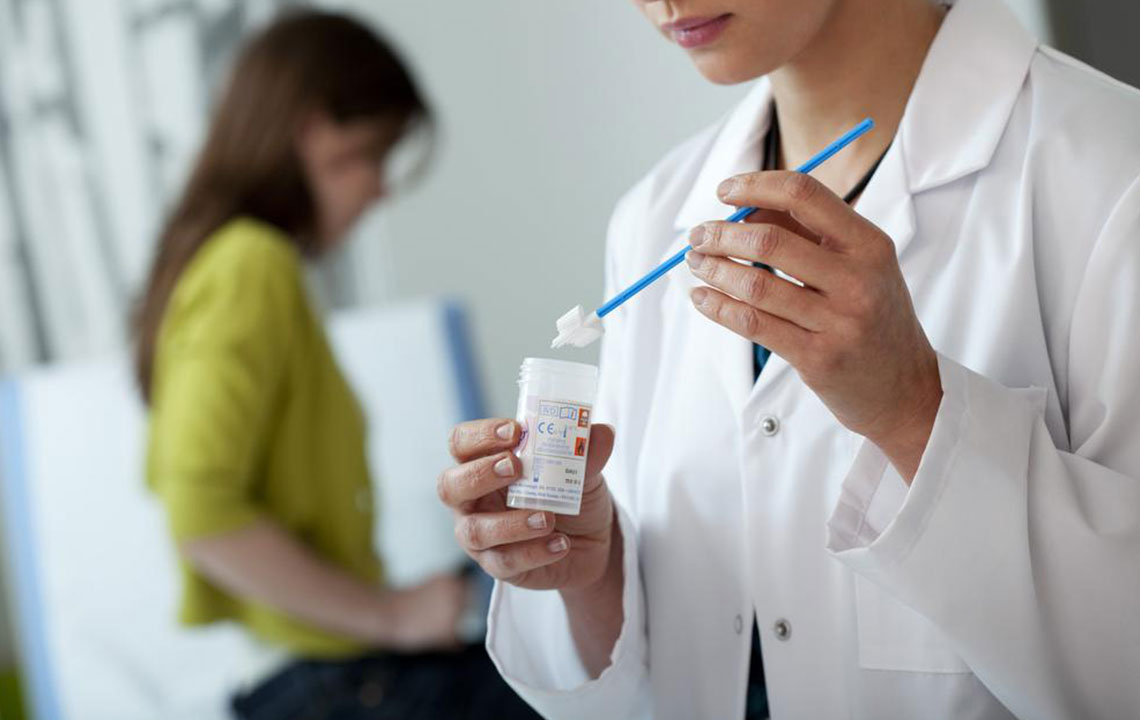Effective Treatment Options for Vaginal Dryness
The vagina is a very sensitive part of the female anatomy and plays an essential role in the reproductive process of a human body. Vaginal dryness occurs when the tissues of the vagina are not well lubricated and healthy. Though it is especially common in women who have hit menopause, vaginal dryness can occur at any age owing to multiple reasons. It can cause pain or discomfort during sexual intercourse.

During menopause, estrogen production slows down and then gradually stops. This causes several unwelcome changes in a woman’s body. Periods become irregular and then stop. You may have hot flashes, mood swings, a deeper voice, and an increase in facial hair. Vaginal dryness is another common symptom of menopause and one out of every three women experiences it while going through it. It becomes more common after menopause. It may seem like a minor irritation. However, the lack of vaginal moisture can have a huge impact on the family life.
What causes vaginal dryness?
Vaginal walls stay lubricated with a thin layer of clear fluid. Estrogen helps maintain that fluid and keeps the lining of the vagina healthy, thick, and elastic. During menopause, estrogen levels drop and thereby reduces the amount of moisture available. This, therefore, makes the lining of vagina thinner and less elastic. Estrogen levels can also drop due to childbirth and breastfeeding, removal of ovaries, cancer treatment, smoking, certain immune disorders, allergy, cold medication, and anti-depressants. Vaginal dryness can be extremely uncomfortable. It can lead to itching, a burning sensation, and an extremely painful intercourse.
Certain soaps, lotions, perfumes, and douches can disrupt the natural balance of chemicals in the vagina, leading to dryness. At times, stress and anxiety can also cause vaginal dryness. Sjogren’s syndrome, a rare autoimmune disease, is also responsible for vaginal dryness.
What are the symptoms of vaginal dryness?
Symptoms of vaginal dryness may include:
- Soreness, itching, or burning of the vagina
- Painful intercourse and light bleeding post-intercourse
- Mild vaginal discharge
How is vaginal dryness diagnosed?
Burning, itching, or any form of discomfort in the vaginal area requires medical attention. Upon performing a pelvic examination, the doctor can then check for itching or redness to ensure the cause of such discomfort whether it is dryness, urinary tract infection, or any other form of infection. They may even perform a Pap test to remove and test the cells from the vaginal wall or the cervix.
What are the things used for vaginal dryness treatments?
Lubricants: Lubricants are liquids or gels that you apply to your vulva, vagina, or your partner’s penis just before having sex to keep your vagina moist. This is one of the ways for vaginal dryness treatments that offer immediate but short-term relief from vaginal dryness. Several different brands of lubricants are available to buy from shops and pharmacies without a prescription. You may need to experiment with a few different types to find which of these vaginal dryness treatments work best for you.
Estrogen therapy: The most common treatment for vaginal dryness due to low estrogen levels is topical estrogen therapy. Topically applying estrogen at times replaces some of the hormones your body is no longer making.
There are 3 types of vaginal estrogen:
Vaginal estrogen ring: It’s a soft, flexible ring inserted into the vagina where it releases a steady stream of estrogen directly to the vaginal tissues. The ring has to be replaced every three months.
Vaginal estrogen tablet: With a disposable applicator, a tablet is inserted into the vagina once a day for the first two weeks of treatment. Insert it twice a week till the individual needs.
Vaginal estrogen cream: This cream is inserted into the vagina with an applicator.
Estrogen products are bound to have side effects like vaginal bleeding or breast pain. Hence, it is not recommended for women suffering from breast cancer, endometrial cancer, pregnant or breastfeeding women. Basically, it’s not something a doctor would recommend for long-term usage.
Vaginal moisturizers
Vaginal moisturizers are creams to apply on the inside of the vagina to keep it moisturized. This is one of the most effective vaginal dryness treatments. Proved to be better than lubricants if the dryness isn’t just causing problems during intercourse. They usually need to be applied every few days. Lubricants or water-based moisturizers are generally best, as oil or petroleum-based products can damage latex condoms and sometimes irritate the vagina.
Hormone replacement therapy (HRT)
HRT is a treatment that involves taking medication to replace the hormones that start to decline during the menopause. HRT has a wider effect on the body than the vaginal estrogen, though it has many side effects. These include weight gain, fluid retention, nausea, headaches, breast tenderness, spots on the sun, etc.
Natural oils
Grapeseed, olive, sweet almond, sunflower, or coconut oils are great natural oils that are gentle during or after bathing and even can be used during sexual intercourse. This can help in lubricating the vagina. This is one of the most effective and accessible vaginal dryness treatments.
When suffering from vaginal dryness, avoid using douches, bubble baths, scented soaps, and lotions around the sensitive vaginal area. These products can worsen the dryness.